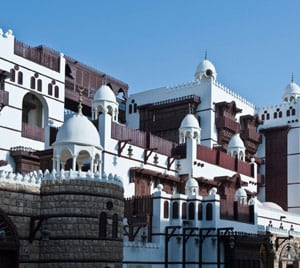ROUNDUP
By Gordon Platt
The six member countries of the Gulf Cooperation Council (GCC) agreed at a meeting in Jeddah, Saudi Arabia, last month to postpone a planned customs union for several additional years. At the exceptional meeting of ministers of foreign affairs, finance and the economy, the six countries could not agree on how customs revenues would be distributed, or how they would be collected.
The GCC countries—Saudi Arabia, the United Arab Emirates, Qatar, Kuwait, Bahrain and Oman—agreed more than seven years ago to establish a customs union, but have been unable to decide on its implementation. Kuwait finance minister Mustapha Al-Shamali told a press conference after last month’s meeting, which was chaired by Kuwait, that the 2003 agreement is still intact.
Negotiations are continuing with neighboring countries and economic blocs. Al-Shamali said the GCC countries could start introducing an automatic customs-clearance system later this year. That could help to ease persistent delays at border crossings.
Meanwhile, the GCC experienced a drop of 16.7% in foreign direct investment in 2009 from a year earlier, due to the global financial crisis, according to the United Nations Conference on Trade and Development (Unctad). The FDI inflow to the UAE suffered from the bursting of Dubai’s property bubble and fell to $4 billion last year from $13.7 billion in 2008. A major exception to the declining trend was Qatar, which is rapidly developing its natural gas exports and is expected to post economic growth of 18.5% this year. Qatar’s FDI inflow more than doubled from $4.1 billion in 2008 to $8.7 billion in 2009.
Saudi Arabia and the UAE received about 80% of the $278 billion total FDI that flowed into the GCC countries in the past 20 years, according to Unctad. Outside the GCC, Egypt was the largest recipient of FDI in the Arab region in the last two decades, with cumulative FDI of $66.7 billion. Morocco was second, followed by Lebanon and Tunisia.
Separately, Dubai Holding Commercial Operations Group, the real estate and hospitality unit of Dubai Holding, announced in September that it would delay the scheduled repayment of a $555 million loan until November 30. The facility is part of a $1 billion revolving-credit facility provided by BNP Paribas, Citi, RBS and Standard Chartered. “The extension is required to enable all those involved to seek an agreement on an extended long-term facility,” the company said in a statement. It had extended the same facility in July by two months. Dubai’s government-related debt totals approximately $109 billion. It may have to increase asset sales and government borrowing to meet loans coming due over the next few years from state-linked companies.
 |
|
Backing down: Jeddah meeting left GCC union plans on hold |
Emirates Steel, the only integrated steel plant in the UAE, has signed a $1.1 billon project-financing agreement with nine banks, including two Islamic financing institutions, Abu Dhabi Islamic Bank and Al Hilal Bank. The steelmaker is managed by the Abu Dhabi Basic Industries Corporation, a part of General Holding, a government-owned company. The other members of the lending group are National Bank of Abu Dhabi, Union National Bank, First Gulf Bank, Bank of Baroda, Arab Banking Corporation, Al Khaliji France and Al Khalij Commercial Bank. The steel producer’s output of finished products rose more than 45% in the first half of this year compared to the same period a year earlier. It plans to use the proceeds of the financing to expand its capacity.
Qatar is the most competitive economy in the Middle East, according to the World Economic Forum’s Global Competitiveness Index, which placed all of the GCC countries among the world’s 40 most competitive. Qatar ranked 17th globally, followed by Saudi Arabia in 21st place and the UAE in 26th. Among Qatar’s strengths, the WEF’s 2010–2011 report cited a high-quality institutional framework, a stable macroeconomic environment and an efficient goods market.
The UAE was the only GCC country to decline in the rankings. It slipped by two places, and the WEF said there has been a downgrade in the assessment of institutions, particularly private institutions, where accountability standards and the effectiveness of corporate boards are evaluated less positively.



